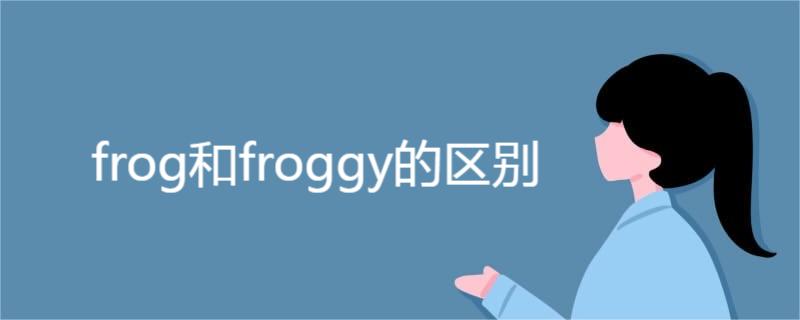-
-
frog和froggy的区别在于中文含义及复数形式不同。“Frog”通常指的是青蛙,但在某些情境下也用作对法国人的贬称。“Froggy”作为名词,也可以指青蛙,但通常用作昵称或贬义词。

frog和froggy有哪些区别
1、“frog”是一个常见的英语单词,主要用来指代青蛙这种生物。值得注意的是,“frog”这个词在某些特定语境下,比如在美国俚语中,还可以用来指代法国佬,这是因为法国人喜爱吃青蛙腿而得名。
例句:
The little frog was hopping around in the garden.
那只小青蛙在花园里跳来跳去。
2、而“froggy”这个单词,虽然也常用来表示青蛙,但它在用法和含义上与“frog”存在一些细微差别。首先,“froggy”作为名词时,它的复数形式仍然是“froggy”,而不是“froggies”。其次,“froggy”这个词汇在日常英语中并不如“frog”常见,它可能更多地出现在儿歌、故事书或者特定的文化语境中,给人一种更加亲切、可爱的感觉。
例句1:
The storybook described a cute froggy with big eyes.
故事书里描述了一只长着大眼睛的可爱小青蛙。
例句2:
The froggy sat on a lily pad, singing its happy song.
小青蛙坐在荷叶上,唱着快乐的歌。
从例句中可以看出,“frog”更常用于描述青蛙这一生物本身,强调其生物学特性或行为;而“froggy”则更多用于文学、儿童故事或儿歌中,带有一种可爱、亲切的意味,有时也用于指代青蛙形象的玩具或装饰品。
frog和froggy的例句
froggy造句/例句
1. Froggy are supposed to sleep all winter. Wake up when the snow melts.
青蛙要冬眠,直到冰雪融化才醒来。
2. Froggy: Hello. I just want to try the pilot's occupation, but I can not do it. I am very sad.
姐姐,你好。我刚刚想试试飞行员的职业,结果不行,我很伤心啊。
3. No, it's not weird that an Army major is making froggy faces at a computer screen in Afghanistan.
不,一个在阿富汗的上校在电脑屏幕前做青蛙鬼脸这并不奇怪。
4. Froggy hops out into the snow for a winter frolic but is called back by his mother to put on some necessary articles of clothing.
乔治想去外面的雪地里玩,却被妈妈叫了回来,让他添一些必需的衣服。
frog造句/例句
1. "Gung,gung,"went the little green frog.
"呱,呱,"这只绿色的小青蛙开始了。
2. "Gung,gung,"went the little green frog one day.
"呱,呱,"这只绿色的小青蛙开始了一天。
3. "Now, will you be quiet, odious frog," said she.
"现在你想睡就去睡吧,你这个丑陋的讨厌鬼!"